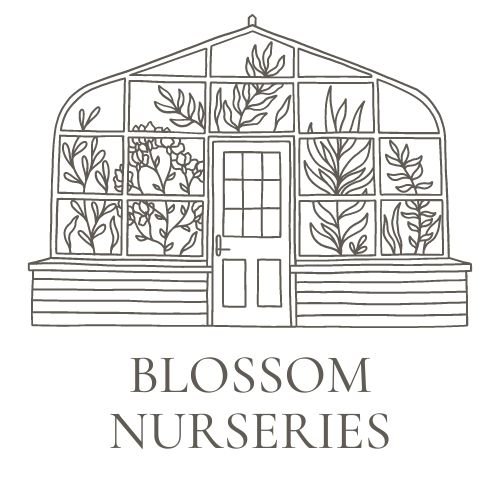The truth about buying plants at the big box stores…
You know the ones we’re talking about, big blue and orange logos.
We get it, it’s tempting. You head to the store for some paint, or maybe you need some lightbulbs, but on your way in, you’re captivated by the big, bright, earthy smelling greenhouses. You figure you’ll just take a peek, Spring is here and your seasonal depression is instantly dissipating. Once you enter…the $10.99 price wins you over and the rest is history.
Here’s the truth: don’t do it. We’re not saying that because we want you to shop with us (we do, however, want you to shop with us, but that’s besides the point!) we’re saying this because it’s generally not worth the investment and here’s a few reasons why:
Regionally Unsuitable Products: Most of the time you’re purchasing products that were placed in the store based on national inventory sales decisions. This means “Mike” was sitting in a corporate office somewhere looking at spreadsheets filled with data. He determines which products can be sold for the best profit possible based on national sales, keyword being national. You’ll very often find products that aren’t suitable for your soil and climate, which means: failure to thrive shortly after they’re brought home.
Chemical Overload: We tend to turn a blind eye to the very simple fact that big box stores heavily overuse chemical products on their plants. Similar to the food industry, they do this strategically of course. They need to artificially speed up production and they load up even more chemicals to keep the product in ‘good looking’ condition from manufacturing plant ➡️ truck ➡️ greenhouse ➡️ consumer.
Zero Expertise and Poor Plant Care: This isn’t a knock on any employees, they’re assigned a department and they usually do the best they can. That being said, it’s important to know what you’re buying so you can properly care for it. Sure, you can read the informational tag, but it is really nice when you can ask an employee for some help, or describe your environment and they can point you in the right direction. At the end of the day, this is what they do for a living, and they will come with ample experience. Additionally, the plants at the big box stores typically aren’t cared for properly. Due to the rotation of staff, you’ll often find the plants being mishandled. This could mean they’re not being fertilized, pruned properly, watered or just generally not cared for in the way they should be. This can stunt growth depending on the time of year, and you might not realize that until after the purchase has been made.
Increased Pests & Root Rot: Similar to our previous point, due to the lack of knowledge and care for these plants, you have a much higher likelihood that these items will be riddled with pests and root rot. Big Box store employees don’t always have the knowledge or passion to truly care about the plants, and therefore overwater, ignore pests like spider mites and much more. If you’re not diligent, you could end up with a damaged plant, whereas a local nursery will avoid this, and if it does happen, they’ll catch it and not sell those items.
Now, don’t get it twisted, we’re not plant bullies. No plant is a “bad plant”, and often times you might even see local nurseries selling the same brands as the big box stores (you know the famous Proven Winners we all know and love) but the above examples are all about the process from start to finish, because that is what’s important.
Local Nurseries will ensure that the children are given the proper care while we raise them, until they’re ready to enter your home. We’ll care for them in a sustainable, healthy way, and we’ll educate you on their upbringing and prepare you. Plus, once you get home, the buck doesn’t stop there, you can always contact the same local nursery and ask for guidance if needed, in a way, those extra few dollars you might spend at a local nursery and garden center have long term capital gain (or something like that! we’re plant people, not finance gurus, jeez).
Last, but not least, when you shop at a local nursery, you are truly re-investing in your community. It may be true that local businesses have a dim light future with Amazon and all the big box stores increasing in size year after year, but in order to combat that, the best thing you can do is stop in to your local nursery and support them as well.
To them, it means the world, to Mike in corporate, it means nothing (no offense, Mike).

